- Bring on the Lucie by Hallelujah the Hills - October 9, 2015
- Experiment: Two Words - July 27, 2013
- POV - July 19, 2013
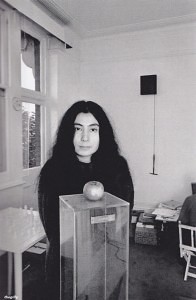
Yoko Ono and an apple, 1966.
Browsing in a used bookstore last night, I came across this quote in Rolling Stone Raves: What Your Rock & Roll Favorites Favor (1999):
Yoko Ono: “No, I didn’t know any of [the Beatles’ music when I met John Lennon.] I had heard about the band, the mopheads or whatever. I knew that they were making a big impact on people, like a social phenomenon. I just never got around to listening to their music.” [1992]
My first reaction was “Wow.” I mean, I knew Yoko was no Beatles fan when she met Lennon, but I’m surprised that 1) she was apparently that unaware of their music, being in London in 1966 and that b) she uses the “mopheads or whatever” phrase in 1992.
I kind of admire her for putting that out there so uncompromisingly: she’s sure not varnishing her past reactions for a later audience. Maddeningly, I can’t find a good context for this quote, so I don’t know what else she went on to say (if anyone in cyber land does know, please respond!) I’d really like to think that her next line was “When I did listen to it, I was impressed with a lot of it,” but I’m not holding my breath.
As much as I appreciate her forthrightness, this quote also embodies what I find grating in Yoko’s persona. It strikes the more-artistically-enlightened-than-thou stance familiar from snooty record store clerks, pompous rock critics, and know-it-all grad students.
That reference to “mopheads”also sounds somewhat defensive, as if Yoko is underlining that her attraction to John wasn’t based on his fame, that she was in no sense a groupie. And indeed, as an earlier post and discussion on this blog explored, Yoko’s attraction to John was in some sense that she was an anti-groupie: someone whose lack of investment in the Beatles made it easier for John to imagine leaving the band.
The same page (300) of the Rolling Stone Raves book includes a quote from Paul McCartney that measures the distance between his attitude toward the band and Yoko’s. “I’ve been told I’m the biggest Beatles fan of all. I’m proud of what we did. We were a great band. Name me one better.” [1994]
Not hard to understand why they’ve never gotten along easily.

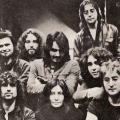

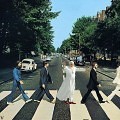
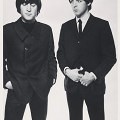
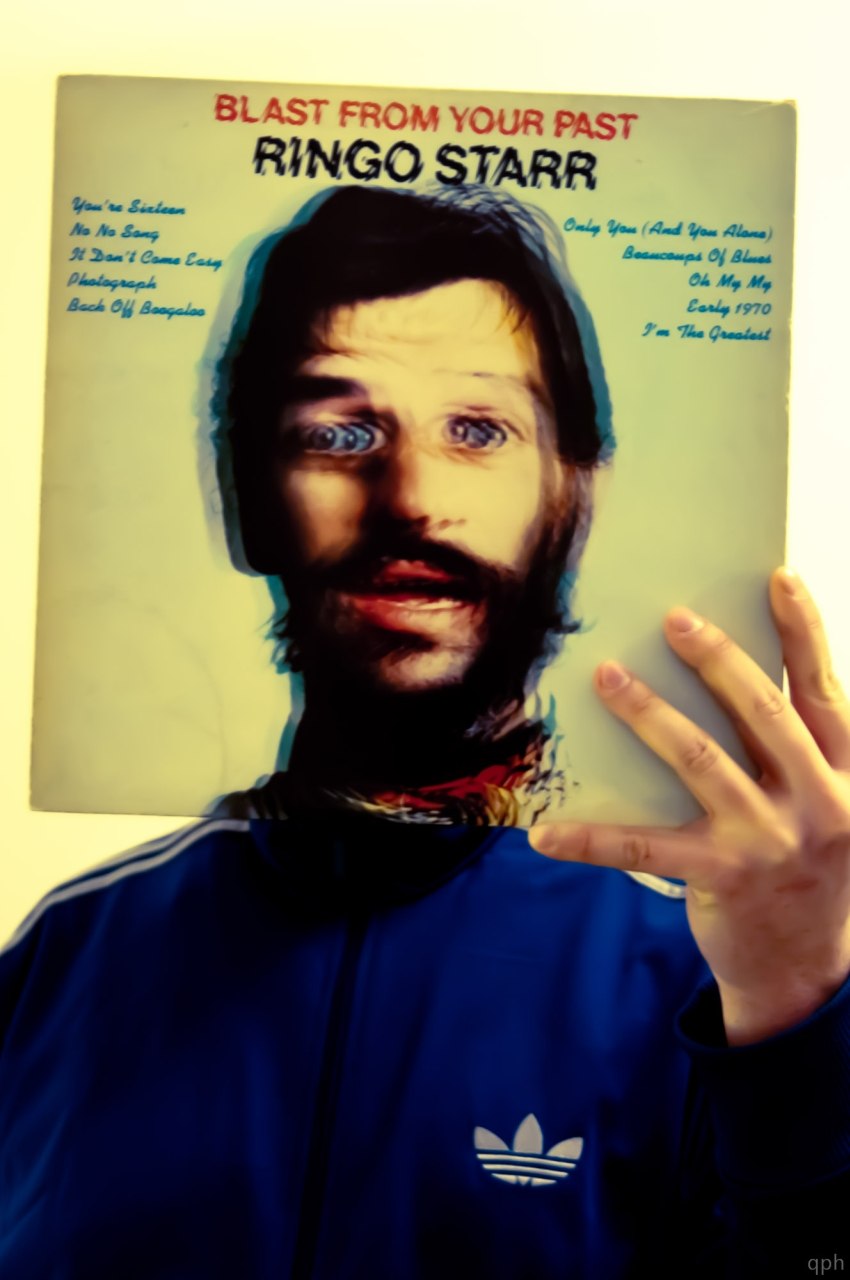

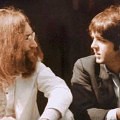
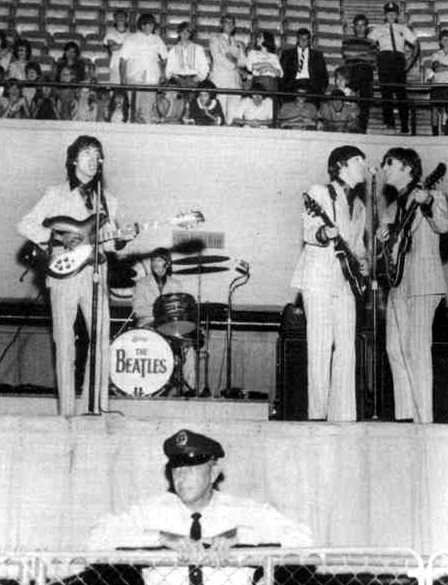
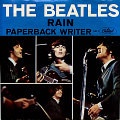
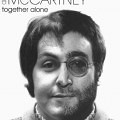
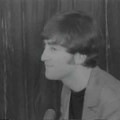

Just like her comment about John’s “hot bod” (Michael–I still need to email you re: that), this is another one of those Yoko statements that gives me the grins. But where I think most people can readily identify the harmlessness of her slightly batty personality when she comes forth with stuff like the former quote, the latter is a different story. It pushes that big button, the one where she’s ostensibly commenting on the Beatles’ worth. How could she have not heard the music of the Beatles? Is she making this up? Does she think she’s better than them?
Weirdly, I think the answer to that question is “yes,” but only in a highly qualified sense. Yoko comes from the early 60s NYC art scene, now the nidus of an enormous amount of cultural influence itself. At the time, much of the conceptually-driven, “difficult” work Yoko and her cohorts were accomplishing was either ignored or derided by the uncomprehending general public. That defensive, more-artistically-enlightened attitude developed in response to the frustration of being engaged in highly abstract, pioneering work while large chunks of the rest of the world jeered. And, as one shuts the door on mainstream outside influence, so also does it close on other elements of popular culture, such as the biggest, best-selling band in the world. Yoko wasn’t listening to the Beatles, she listened to her friend Ornette Coleman. Because who listens to the *Beatles?*
So, I don’t think Yoko was unaware of the Beatles’ music at all, nor do I think that’s what she’s saying in the quote. I’m certain she was exposed to their music tangentially in the way others inevitably would have been. She is acknowledging, however, that she was too cool to actively engage herself in it. And, by the time that 1992 rolled around, I think it’s nice that she was being so even-handed about this! In the late 60s, for example, I don’t think her observation would have been that she “just never got around to listening” to them.
Nancy, it sounds to me like you’re saying that this is what you’re reacting to, i.e., an obviously self-conscious air of elitism. And although I’m wearing the apologist hat for Yoko’s behavior right now, I actually completely agree with you–but only when artists (or record shop clerks, or whomever) put on that act in the present day. Because while I understand the reasons for their attitude back then, I think it’s entirely anachronistic now, when, say, those who have the fourth-hand Warholian attitude are almost guaranteed to have made the conscious decision to shape their personalities in that way. It’s appropriately postmodern to have done so, to be sure, but also very tiresome when you encounter it on a daily basis.
But when it comes from the first-generation guard, I’ve managed to locate the sincerity within their demeanor. Part of this is because I find their dismissive nature to be significantly less reckless than that of those closer to my own age, but it’s also partly because as these folks get older, many have also become more adorably off-the-wall. And for me, that’s Yoko, with the additional enhancement of her non-native Westerner status, as evidenced in as early as 1992 by the first part of that quote.
I mean, “mopheads?” That’s some funny stuff.
I think Yoko was perhaps more aware of who the Beatles were and who John was than she might admit. However, I really do believe that she wasn’t really that familiar with their music, for the reasons explained so well by matt m above.
And I think the ‘mopheads, whatever’ comment is endearingly tongue-in-cheek. It sounds self-mocking, if anything.
But I’d be surprised if she did say something like, “When I did listen to their music, I was impressed with a lot of it,” because, well, I doubt that’s true. And if it’s not true, I doubt it’s a lie she permit herself to tell.
And if we’re honest, that’s one of the big problems with Yoko, isn’t it? That she’s so obviously not really a Beatles fan. And I think that’s probably why her presence in the studio was deemed pernicious and negative.
I think once one acknowledges that Yoko WASN’T a Beatles fan but DID fall in love with John, and accept it, everything makes a bit more sense.
It seems ironic and maybe unfair that someone who played such a big part in the Beatles’ story might not have cared much for the band’s music. But it was probably one of the reasons why John was attracted to her in the first place.
But I’ll never make up my mind about Yoko. My opinion of her swings back and forth over time, with the needle never quite reaching either ‘love’ or ‘hate’.
Yoko has always liked to spread the fiction that she didn’t know the Beatles music or who John was. And Paul himself rebutted that by pointing out that she’d approached him first for a lyrics sheet and he told her to go visit John. So this idea that she wasn’t aware of them or their music is just a lie and she (and John) knowingly told it. For whatever reason.
It’s kinda like how Yoko claims Sean Lennon had never heard the Beatles music as a child — except there’s a recording easily found on the Web of Sean singing Yellow Submarine with John. And Sean knew the whole song!
It’s this odd tendency she and John both had to distance themselves from the Beatles, to put themselves above it all. Seems really silly in hindsight.
And to be perfectly blunt, (and catty since she was) her hair in that photo beats out the Beatles in the mophead competition.
— Drew
Matt, Peter, and Drew, thanks for your comments. The “mopheads” reference is pretty funny. I just can’t help hearing it as dismissive as well. It seems analogous today to the way some people call the Beatles a “boy band,” as if the phenomenon of Beatlemania proves the music is disposable.
And Matt, you’re right about its being the elitism in the comment that bugs me, and you’re probably right as well about the difference between first-generation artists and people who take up this attitude now. But even in that first generation, the attitude seems to me impoverishing.
Peter, I agree that it’s unlikely Yoko can truthfully say she is impressed by/enjoys much of the Beatles’ music, and that she would be unlikely to lie and say she does, even though she knows that might go down well with the public. I admire that integrity.
And I don’t think there’s much doubt that Yoko’s lack of interest in the Beatles’ music was a big part of her attraction for John. Being with someone who wasn’t gaga for the band had to be refreshing, and her ability to reframe the band as not that big of a deal helped him imagine getting out of it. I think part of what Yoko did was catalyze John’s discomfort with the Beatles — especially the early “moptop” performing years — into the impetus to leave.
I do find it sad that Yoko apparently didn’t/doesn’t “get” the Beatles’ music, especially because I have to think that contributed to John’s ongoing ambivalence about the band’s work. I wish he could have been proud of what he and the group accomplished, and not have carried so much emotional baggage related to it.
In mean, in the 1971 Rolling Stone interview, John famously said:
“You know, Brian put us in suits and all that, and we made it very, very big. But we sold out, you know. The music was dead before we even went on the theater tour of Britain . . . . The Beatles’ music died then, as musicians. That’s why we never improved as musicians; we killed ourselves then to make it. And that was the end of it.”
OK, that’s putting everything the band ever recorded in the trash bin. And I’m afraid that’s where artistic elitism can get you: if you perform and are popularly beloved, you can’t be doing “real” or important art. And I think it’s a dreadful shame that the guy who I think is the greatest rock singer, and one of the greatest songwriters, had that kind of perspective on the work he and the Beatles did.
I know John modifies this stance a bit in later interviews, but I don’t think that splinter ever really worked itself out of him. If he’d lived longer . . . .
I love your comments, Matt M. We should get you to do a post on Yoko and Fluxus’ cultural influence; I’m interested to hear what you think.
To my (non-artist) eye, a lot of Fluxus seems like warmed over Dada plus media technology, and while Dada was radical, fifty years later its techniques and ideology was pretty well domesticated. Duchamp at the Armory Show, Stravinsky’s Rite of Spring–these are clearly leaps forward, a whole new way of thinking, and the pushback is part of that. To say that Fluxus faced the same thing is to say that American culture was just as square in 1965 as it was in 1915, and that’s simply not true.
Of Yoko in particular, I’m not convinced that the antagonism Yoko received was caused by her art; I think it’s more likely to have come from her ethnicity, gender, and role in The Beatles’ story. And whether I like a given piece or installation or not, her art definitely reinforces a European, aristocratic, épater la bourgeoisie mindset that was old news even in 1965. That was why she and Warhol never got along; and why John, Mimi’s son from provincial Liverpool, flipped over her. Yoko Ono is what he thought a genius looked like.
Authentic artistic geniuses–like the guys I mentioned, or The Beatles–create a clear dividing line, before and after. I don’t see that, or anything like that, with Fluxus. Maybe in the art world it’s perceived, but that’s a very different, still important but much more minor kind of event.
To put it in my field: there are certain people, the geniuses, who can be seen to have changed the game in some important way AND achieved popular success–Robert Benchley; Peter Cook; Woody Allen; Michael O’Donoghue. Then there are the innovators/stylists, often very successful, who are revered within the comedy business–people like SJ Perelman or George Meyer or Brian McConnachie; and the really popular people who did the conventional thing, only exquisitely better, like James Thurber or Doug Kenney. There’s a lot of blurring here, and one could quibble about my placement, but it’s a basic taxonomy that seems to work.
To me Yoko is firmly in that second category: a talented, driven person who definitely has innovated within a very narrow framework, and was recognized by her fellow artists as an interesting, unique talent. Out of all The Beatles, it’s closest to George Harrison.
IMHO, Yoko’s impact on the mainstream has come as a result of having married John Lennon, and I think you can’t understand much about either of them or their marriage without perceiving the weird, incredible tension that must have caused. And I don’t think you can understand how she feels about The Beatles or their fans without perceiving her intense and laudable desire to be in that first category, and maybe feeling that it was her association with John Lennon closed that door.
“Mopheads” was undoubtedly a reference to how they were popularly portrayed, a shorthand for people who had heard of them but knew nothing about them. Likely not a disparaging remark; there’s no other indication that she felt long hair was inappropriate for men.